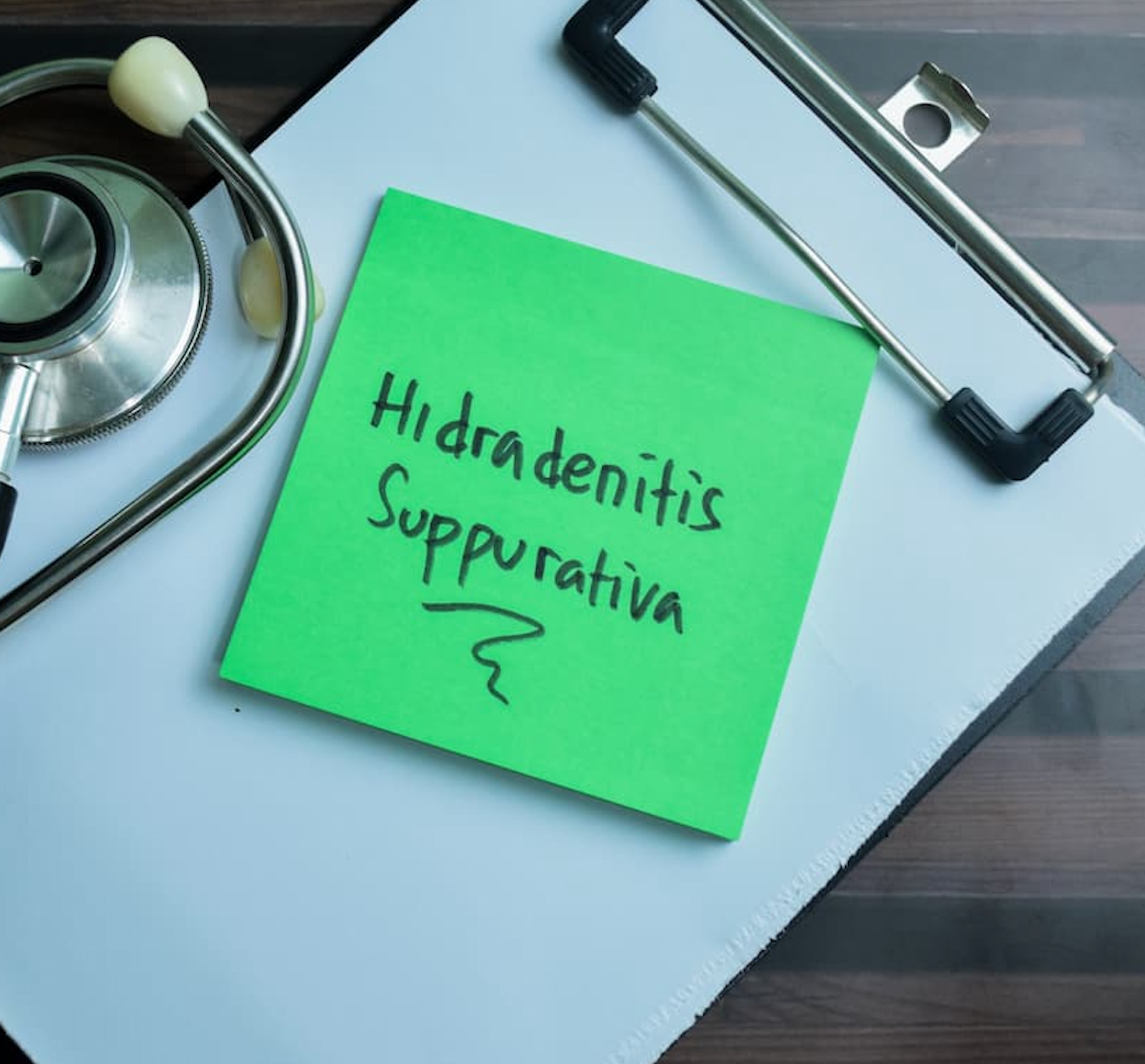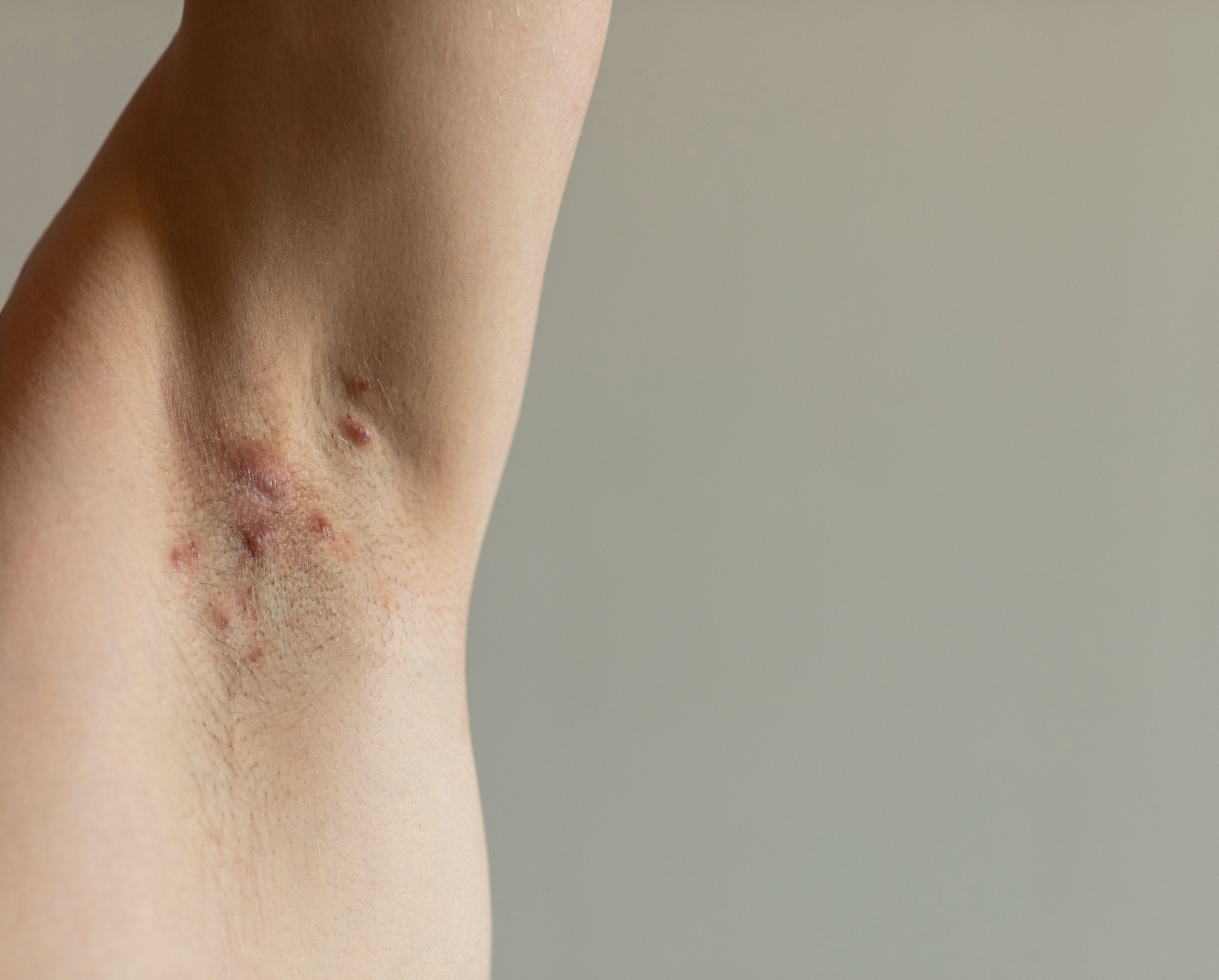
The Emotional Impact of Hidradenitis Suppurativa
Mental health struggles are common in hidradenitis suppurativa, and they're not just tied to how severe your skin symptoms are.
By
Lana Pine| Published on August 7, 2025
5 min read
A new study has confirmed what many people living with hidradenitis suppurativa (HS) already know: The disease doesn’t just affect your skin — it can also take a serious toll on your mental health. A team of investigators found that people with HS face a significantly higher risk of developing depression and anxiety, and this increased risk exists regardless of how severe their HS is.
What Is HS?
HS is a chronic skin condition that causes painful lumps, abscesses and scarring, often in sensitive areas like the underarms, groin and buttocks. It’s more common in women and typically starts around the time of puberty or young adulthood. Unfortunately, HS is often misdiagnosed or ignored, leading to delays in getting proper treatment. On average, it can take seven to 10 years from the time symptoms appear to receiving an official diagnosis.
During that time, symptoms can worsen, leading to complications like infections, scarring, swelling and even skin cancer in rare cases. The condition can cause chronic pain, limited mobility and deep emotional distress. Many people also feel isolated or embarrassed due to visible flare-ups, body odor or draining wounds.
Mental Health and HS: The New Study
A research team from Denmark, led by Nikolaj Holgersen, M.D., studied 10,206 people with HS and compared their mental health outcomes with those of 40,125 people without the condition using the Danish Civil Registration System.
“The aim of this study was to assess the risk of new-onset and recurrent depression and anxiety among patients with HS and its association with disease severity, defined as treatments received and hospitalizations for HS-related surgical procedures, compared with the background population,” wrote Holgersen.
Among patients with HS, the mean age was 38 years and 69.9% were female. Patients were also more likely to have a history of alcohol use disorder (5.8% versus 2.6%, respectively) and smoking (14% versus 3.8%, respectively).
Their findings showed the following:
- People with HS are 69% more likely to develop depression.
- They are 48% more likely to develop anxiety.
- This elevated risk exists regardless of how severe the HS is or what treatments people are receiving.
Even people with milder symptoms who were using only topical treatments were still at significantly increased risk for mental health problems. Compared with the general population, more patients with HS had a history of depression (7% versus 0.3%, respectively) and anxiety (5.9% versus 0.5%, respectively).
Why Mental Health Is Impacted
The team believes the connection isn’t just about how “bad” the skin condition is. Instead, it's about how living with HS affects your daily life, including visible skin symptoms, pain and flares, fear of public judgment, and disruption to work, exercise and relationships. These challenges can add up — making everyday life feel harder and increasing the emotional burden of the disease.
This study sends a clear message to patients and health care providers alike: depression and anxiety can affect anyone with HS, and mental health needs to be addressed at every stage of care.
Investigators mentioned that the large number of people with HS and long follow-up period using comprehensive data from health records strengthened the study. Additionally, they were able to track both depression and anxiety in the same patients, and look at different levels of HS severity.
However, limitations included relying on existing health records, as some cases of HS, depression or anxiety might have been missed or misclassified. It was also difficult to separate mild from severe mental health issues, since all levels were grouped together. The way disease severity was measured — based on treatments received — may not reflect a person’s actual experience or symptom intensity. Additionally, since the study focused on patients diagnosed in hospitals, it may have missed those with milder cases seen only by general practitioners.
“Future research to identify other factors that may be associated with the risk of the development of depression and anxiety for this group of patients is highly warranted,” concluded investigators.

